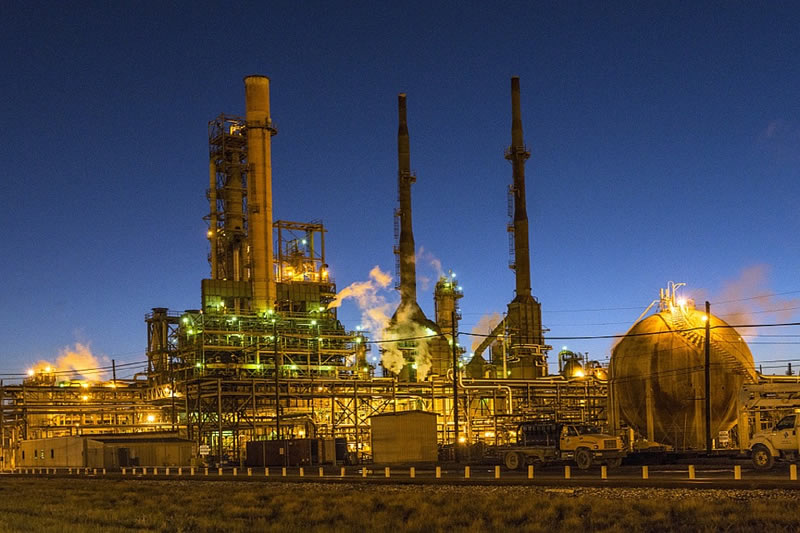Crude Oil is Starting 2018 Strong but there's Undeniable Risk to the Downside
Commodities / Crude Oil Jan 16, 2018 - 09:06 PM GMTBy: Boris_Dzhingarov
Crude oil is starting out strong in 2018 as both the international Brent benchmark and the West Texas Intermediate continue to book price gains. The gains in crude oil prices this year is riding the waves of the uptrend in oil prices that began in 2017. Now, the U.S. West Texas Intermediate is trading up around $63.57 per barrel and the Brent crude is trading up around $69.20 per barrel.

Commodities analysts and experts are becoming more optimistic about the prospects of crude oil this year. Analysts at Citigroup have hinted that they expect crude oil price to move into the $70 to $80 range as geopolitical uncertainties reduce the supply. Bryon Wien of Private Wealth Solutions opines that crude oil will cross $80 per barrel because “demand is going to continue to increase faster than supply.”
Despite the obviously predominantly bullish trend in the market, some commodities experts are sounding notes of warning that it might probably be too early to conclude that crude oil is back to winning ways. Below are some of the factors that could precipitate a bearish case for crude oil.
Factors that could send oil prices lower
To begin with, much of the volatility that crude oil prices suffered in the last three years is a function of the battle for market dominance between OPEC and U.S. Shale oil producers. OPEC had initially refrained from arresting the freefall in oil prices in the hopes that the low prices will make shale drilling unprofitable and force U.S. shale oil producers out of the market. Interestingly, shale oil producers have shown an impressive resilience to stay afloat even when oil was as low as $39 per barrel.
Hence, you can reasonably imagine that the current uptrend in the price of crude oil will make it easier for shale oil drillers to pump out more oil and trigger another supply glut. In the words, a Carrie Young, a commodities analyst at Wilkins Finance, "it would be foolhardy to ignore the lingering concerns about the possibility of a short-lived bullish rally as U.S. shale expose oil to bigger downside risks."
Secondly, the demand for crude oil could start to drop off as the worst part of winter ends and there's less need for crude for heating purposes. Another factor that could trigger a decline in the demand for crude oil is the fact that Asian refiners have taken advantage of low prices in the last three years to book huge profit margins. For instance, Chinese diesel exports have jumped more than 3000% to 2 million tones and its gasoline exports has surged more than 365% within 2 years to more than a million tons in December 2017.
However, the recent uptrend in oil prices will inevitably trigger a decline in the margin of Asian refiners. The drop in margin could in turn cause Asian refiners to reduce their demand for crude oil in the hopes of forcing a decline in prices.
Analysts preach caution and restraint
Some stakeholders in the global crude oil market are worried that the objectively bearish sentiment outlook on the crude oil market are being drowned out by the cacophony of bullish voices. In the words of Ole Hansen, head of commodity strategy at Saxo Bank, "bullish news tends to get more attention than potentially bearish signals." If the bearish signals come into play on oil prices, it won't be surprising of the current uptrend stalls and the price of crude oil declines into correction level.
By Boris Dzhingarov
© 2018 Copyright Boris Dzhingarov - All Rights Reserved
Disclaimer: The above is a matter of opinion provided for general information purposes only and is not intended as investment advice. Information and analysis above are derived from sources and utilising methods believed to be reliable, but we cannot accept responsibility for any losses you may incur as a result of this analysis. Individuals should consult with their personal financial advisors.
© 2005-2022 http://www.MarketOracle.co.uk - The Market Oracle is a FREE Daily Financial Markets Analysis & Forecasting online publication.



